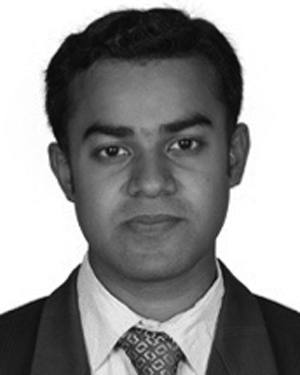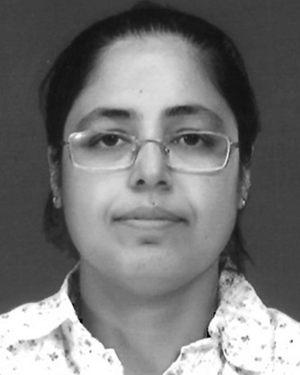Abstract:
Individuals with autism spectrum disorder (ASD) face milestones in understanding other's preferences and intentions that in turn affect their reciprocity and interaction ...Show MoreMetadata
Abstract:
Individuals with autism spectrum disorder (ASD) face milestones in understanding other's preferences and intentions that in turn affect their reciprocity and interaction skills during a collaborative partnership. Investigators are advocating the use of digital-medium-based multiuser platforms to encourage learning of collaborative interaction skills among these children. Although currently available platforms encourage interaction, these do not consider aspects, e.g., anticipating and understanding the partner's preference (or intentions) along with spontaneous reciprocation through turn-taking, important for nurturing effective interaction. In this article, we have developed a multiuser virtual-reality-based interaction skill learning platform (M-VISP) in which the users can interact with each other through turn-taking using the digital platform. Successful execution of the task (quantified in terms of performance) needs them to understand each other's preferences before reciprocating. A usability study was designed in which individuals with ASD (n = 18) and typical development (n = 18) volunteered. Results indicated that the multiuser interaction facility offered by M-VISP could quantify one's ability to understand the preference of a partner in terms of their performance in a task and the spontaneity with which one reciprocated. Additionally, we observed an improving trend in the ability to understand a partner's preference along with exhibiting spontaneity in reciprocation among individuals with ASD.
Published in: IEEE Transactions on Learning Technologies ( Volume: 15, Issue: 6, 01 December 2022)
Funding Agency:

Center for Cognitive and Brain Sciences, Indian Institute of Technology Gandhinagar, Gandhinagar, India
Pradeep Raj Krishnappa Babu received the Ph.D. degree in cognitive science from the Indian Institute of Technology Gandhinagar, Gandhinagar, India, in 2019.
He is currently a Postdoctoral Research Associate in electrical and computer engineering with the Pratt School of Engineering, Duke University, Durham, NC, USA. His research interests include human–computer interaction, psychophysiological-based user interaction strate...Show More
Pradeep Raj Krishnappa Babu received the Ph.D. degree in cognitive science from the Indian Institute of Technology Gandhinagar, Gandhinagar, India, in 2019.
He is currently a Postdoctoral Research Associate in electrical and computer engineering with the Pratt School of Engineering, Duke University, Durham, NC, USA. His research interests include human–computer interaction, psychophysiological-based user interaction strate...View more

Faculty of Medicine, McGill University, Montreal, QC, Canada
Sujata Sinha received the M.Tech. degree in computer science and engineering from the Indian Institute of Technology Gandhinagar, Gandhinagar, India, in 2018. She is currently working toward the Ph.D. degree in neuroscience with Integrated Program in Neuroscience, Faculty of Medicine, McGill University, Montreal, QC, Canada.
She has been a Healthy Brains, Healthy Lives Doctoral Fellow with McGill, sponsored by the Canada F...Show More
Sujata Sinha received the M.Tech. degree in computer science and engineering from the Indian Institute of Technology Gandhinagar, Gandhinagar, India, in 2018. She is currently working toward the Ph.D. degree in neuroscience with Integrated Program in Neuroscience, Faculty of Medicine, McGill University, Montreal, QC, Canada.
She has been a Healthy Brains, Healthy Lives Doctoral Fellow with McGill, sponsored by the Canada F...View more

Indian Institute of Technology Hyderabad, Hyderabad, India
Arvind S. Roshaan received the bachelor's degree in electrical engineering from the Indian Institute of Technology Gandhinagar, Gandhinagar, India, in 2018. He is currently working toward the postgraduate degree in artificial intelligence with the Indian Institute of Technology Hyderabad, Hyderabad, India.
His research interests include machine translation and machine learning.
Arvind S. Roshaan received the bachelor's degree in electrical engineering from the Indian Institute of Technology Gandhinagar, Gandhinagar, India, in 2018. He is currently working toward the postgraduate degree in artificial intelligence with the Indian Institute of Technology Hyderabad, Hyderabad, India.
His research interests include machine translation and machine learning.View more

Electrical Engineering Department, Indian Institute of Technology Gandhinagar, Gandhinagar, India
Uttama Lahiri received the Ph.D. degree in mechanical engineering from Vanderbilt University, Nashville, TN, USA, in 2011.
She is currently a Professor in electrical engineering with the Indian Institute of Technology Gandhinagar, Gandhinagar, India. Her research interests include virtual reality-based human–computer interaction, eye tracking, and physiology-based modeling techniques, human–robot interaction, and adaptive ...Show More
Uttama Lahiri received the Ph.D. degree in mechanical engineering from Vanderbilt University, Nashville, TN, USA, in 2011.
She is currently a Professor in electrical engineering with the Indian Institute of Technology Gandhinagar, Gandhinagar, India. Her research interests include virtual reality-based human–computer interaction, eye tracking, and physiology-based modeling techniques, human–robot interaction, and adaptive ...View more

Center for Cognitive and Brain Sciences, Indian Institute of Technology Gandhinagar, Gandhinagar, India
Pradeep Raj Krishnappa Babu received the Ph.D. degree in cognitive science from the Indian Institute of Technology Gandhinagar, Gandhinagar, India, in 2019.
He is currently a Postdoctoral Research Associate in electrical and computer engineering with the Pratt School of Engineering, Duke University, Durham, NC, USA. His research interests include human–computer interaction, psychophysiological-based user interaction strategies, computer vision, machine learning, virtual-reality-based user interaction systems, and affect-sensitive system modeling.
Pradeep Raj Krishnappa Babu received the Ph.D. degree in cognitive science from the Indian Institute of Technology Gandhinagar, Gandhinagar, India, in 2019.
He is currently a Postdoctoral Research Associate in electrical and computer engineering with the Pratt School of Engineering, Duke University, Durham, NC, USA. His research interests include human–computer interaction, psychophysiological-based user interaction strategies, computer vision, machine learning, virtual-reality-based user interaction systems, and affect-sensitive system modeling.View more

Faculty of Medicine, McGill University, Montreal, QC, Canada
Sujata Sinha received the M.Tech. degree in computer science and engineering from the Indian Institute of Technology Gandhinagar, Gandhinagar, India, in 2018. She is currently working toward the Ph.D. degree in neuroscience with Integrated Program in Neuroscience, Faculty of Medicine, McGill University, Montreal, QC, Canada.
She has been a Healthy Brains, Healthy Lives Doctoral Fellow with McGill, sponsored by the Canada First Research Excellence Fund. Her research interests include social cognition using electrophysiology approaches, computational neuromodeling, neurorehabilitation, human–computer interaction, and assistive technology using virtual reality.
Ms. Sinha is a continuous recipient of the McGill Graduate Excellence Award in every Ph.D. term.
Sujata Sinha received the M.Tech. degree in computer science and engineering from the Indian Institute of Technology Gandhinagar, Gandhinagar, India, in 2018. She is currently working toward the Ph.D. degree in neuroscience with Integrated Program in Neuroscience, Faculty of Medicine, McGill University, Montreal, QC, Canada.
She has been a Healthy Brains, Healthy Lives Doctoral Fellow with McGill, sponsored by the Canada First Research Excellence Fund. Her research interests include social cognition using electrophysiology approaches, computational neuromodeling, neurorehabilitation, human–computer interaction, and assistive technology using virtual reality.
Ms. Sinha is a continuous recipient of the McGill Graduate Excellence Award in every Ph.D. term.View more

Indian Institute of Technology Hyderabad, Hyderabad, India
Arvind S. Roshaan received the bachelor's degree in electrical engineering from the Indian Institute of Technology Gandhinagar, Gandhinagar, India, in 2018. He is currently working toward the postgraduate degree in artificial intelligence with the Indian Institute of Technology Hyderabad, Hyderabad, India.
His research interests include machine translation and machine learning.
Arvind S. Roshaan received the bachelor's degree in electrical engineering from the Indian Institute of Technology Gandhinagar, Gandhinagar, India, in 2018. He is currently working toward the postgraduate degree in artificial intelligence with the Indian Institute of Technology Hyderabad, Hyderabad, India.
His research interests include machine translation and machine learning.View more

Electrical Engineering Department, Indian Institute of Technology Gandhinagar, Gandhinagar, India
Uttama Lahiri received the Ph.D. degree in mechanical engineering from Vanderbilt University, Nashville, TN, USA, in 2011.
She is currently a Professor in electrical engineering with the Indian Institute of Technology Gandhinagar, Gandhinagar, India. Her research interests include virtual reality-based human–computer interaction, eye tracking, and physiology-based modeling techniques, human–robot interaction, and adaptive intelligent techniques.
Uttama Lahiri received the Ph.D. degree in mechanical engineering from Vanderbilt University, Nashville, TN, USA, in 2011.
She is currently a Professor in electrical engineering with the Indian Institute of Technology Gandhinagar, Gandhinagar, India. Her research interests include virtual reality-based human–computer interaction, eye tracking, and physiology-based modeling techniques, human–robot interaction, and adaptive intelligent techniques.View more


